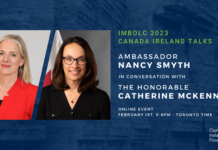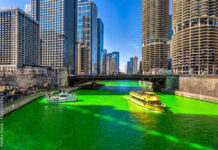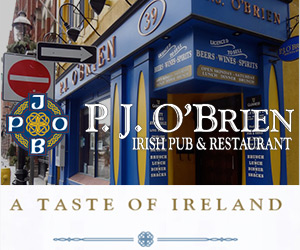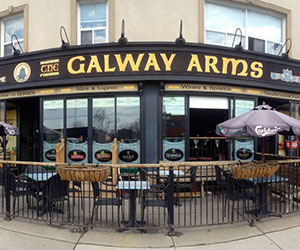
A few years ago, while at a New York event, I made the innocent comment that I thought we were awash in information, to the point that the Information Age was on the verge of facilitating the Disinformation Age.
I candidly admitted that I had stopped reading with the conviction that what I was reading was factually accurate. I regarded it as pre “fake-news”, or just shy of it, the internet then rife in conspiracy theories that ranged from claims that “we never landed on the moon” or “the government was behind 9/11” to Trump’s inexhaustive birther movement that would prove a dry run at cleaving fact from fiction.
After I had made the general observation regarding information overload, an audience member shouted, “What are you advocating, censorship?”
Of course, I wasn’t, but what I felt I needed was a new way to process information, to filter the white noise.
As the Obama presidency entered its second term amidst bitter partisanship, I quit cold turkey reading notoriously ill-sourced online blogs which seemed to proliferate and become ubiquitous in various news feeds. I couldn’t outrun conspiracy. In short, I’d lost faith in words or the message.
I also began muting the TV, opting instead to watch the body language of pundits and politicians in the way one might view vintage footage of Hitler and Mussolini. I didn’t need to know the language to understand the context. Something was terribly amiss in American life.
I was a holdout Obama supporter until near the end, but then I lost faith in the hope speeches communicated in a masterful appeal to interracial audiences where the optics was akin to watching a United Colors of Benetton commercial committed more to cultural sensitivity than economic concerns.
But then that had been Obama’s appeal: his aspirational qualities, his ascendancy, a referendum on a failed presidency of white privilege personified by George Bush. We had been due optimism and the promise that “Yes We Can!”
And yet, times changed.
In the darkening years of the second term, I was left rhetorically asking, “Yes We Can, what?”
I asked it in the rural town of Dowagiac, Michigan, after the closure of yet another major employer and the loss of hundreds of jobs. I was then teaching at a local college and living in the ruinous splendor of a Dickensian, Havishamesque mansion that had once belonged to an industrialist who, along with his bride, had survived the sinking of the Titanic. Such was the prosperity of the Midwest in the last century. The town’s per capita income in 2013 was an abysmal $15,551.
In the seismic fallout, there was no presidential phone call to keep the plant from closing. I remember standing within the vast five-football-fields square enclosure of a factory, a veritable cathedral to manufacturing that had seen its production relocated to Mexico.
You could have borne witness to economic suffering, if you cared. And yet the daily realities of how people survived seemed too lowbrow a concern for an aspirational president committed to the lofty ideal that, “Yes we can!” Trade deals were sacrosanct and economically advantageous to a globalised economy, no matter the realities on the ground. This was entrenched economic theory run amok.
The Democrats lost the rust belt in the fated closure of these factories. Disenfranchisement mounted. Welch’s Juice, another area employer, slashed jobs, making a single-parent, decorated war veteran redundant. Upon his firing, he bought a gun, spent his time watching zombie-apocalypse movies and occasionally visited to tell me about the Illuminati, a shadowy society behind a New World Order agenda.
Demographically, it just happened the town was almost entirely white, which didn’t make everyone a racist. Most in the town had voted for Obama first time around, but in the economic miasma of further factory closures, it didn’t help matters that the president was black or that the Black Lives Matter movement seemed to figure more in the heart of the president than did jobs.
All presidential elections are a referendum on the outgoing president, and what was so generously granted was quickly retracted. Even if one wasn’t a birther, amidst the economic losses it was easy to align with disinformation and lies, to caricaturise and demonise.
It didn’t help either that healthcare reform was passed by executive order, a political overreach that went against the grain of American individualism, when the better option would have been the creation of well-paying jobs. Nor did it help that Hillary Clinton was discovered to have taken hundreds of thousands of dollars in speaking fees from Wall Street as she advocated a unilateral trade deal that would have extended the reach of the North American Free Trade Agreement , frankly admitting she had one message for Wall Street and another for the average person. The final affront was the disclosure that she had circumvented national security and set up a private server to obfuscate transparency, which led to Trump’s mesmerising lines, “Lock her up!” and “Crooked Hillary!”
If Trump and his birther conspiracy was a stretch back in 2008, he set the modus operandi for disseminating disinformation with such broad reach that the stuff of conspiracy morphed into full-blown fake news. Consider the misguided spectacle of Edgar Maddison Welch, who fired a weapon as he entered a DC area pizzeria to free an alleged child sex slave ring led by Clinton adviser John Podesta after a spurious theory went viral, based on leaked WikiLeaks emails.
Disinformation and fake news played masterfully into Trump’s hand. And yet for all his bravado, who couldn’t but commiserate with his weariness of facts that time and again proved false – the alleged weapons of mass destruction that never existed, his own birther lie, on through his challenging the intelligence community’s assessment that the Russians had hacked into the DNC’s computers and influenced the election.
As Trump put it – Who really knew? Who knew, indeed!
That is our modern reality – our digital nightmare. We live within a decentralised information infrastructure based on a digital metastasis of redundancy, a digital medusa that was designed by the military during the height of the Cold War to withstand nuclear annihilation.
It seems prescient that President Obama, in one of his last presidential acts, commuting Chelsea Manning’s sentence, signalled that the existential crisis of the age is our relationship to Information.
And so we are arrived at the cult of personality that is Donald Trump. He represents a reflexive last stand against that which we cannot see. He is a larger-than-life saviour or demagogue, a living, corporeal presence, a populist literalist, a straight-talker who will shame big business into remaining in the US, a president who will build a wall, a president who will renegotiate the right trade deals, a guy with the ultimate “trust me” line, a guy who can cut through the BS, a straight shooter who has all the answers and will obligingly tweet them at 3am in a digestible newspeak that Orwell so warned us about.
But in a world awash with disinformation, who else can we trust?
Irish immigrant author Michael Collins is a professor of English at Holy Cross College, Indiana
By Michael Collins.
This article first appeared in Irish Times.











































